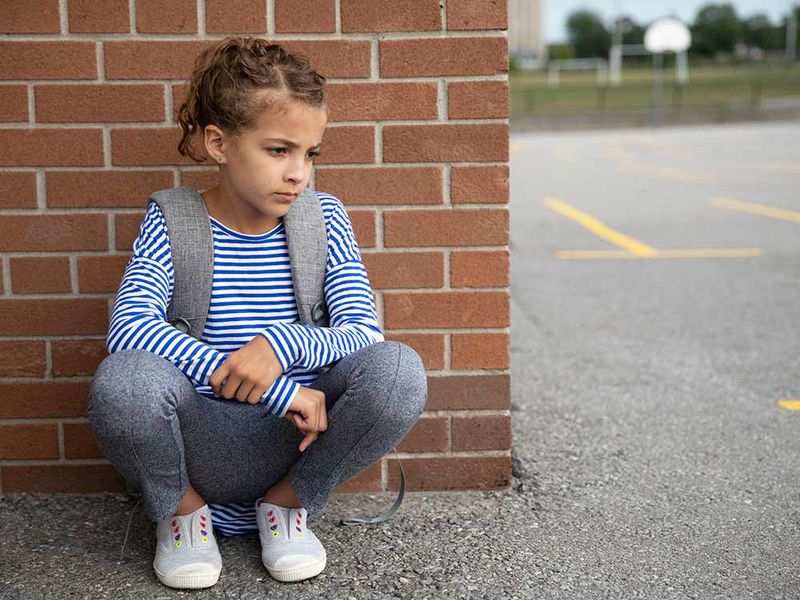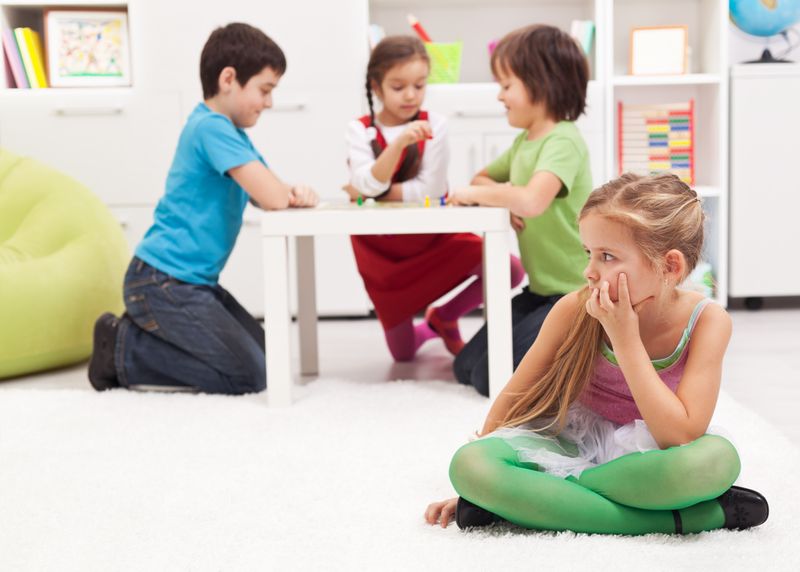15 Activities Parents Encourage Kids To Do, But They Can Be Harmful
Parenting is basically one long game of “Am I messing this up?”—played with love, snacks, and a whole lot of second-guessing. We’re all out here trying to raise decent humans, making choices we hope are helpful.
But here’s the kicker: some of those “good” activities we push? Yeah, they’ve got a dark side. Just because something looks wholesome on the outside—like piano lessons, organized sports, or non-stop enrichment—it doesn’t mean it’s harmless. When taken too far, or forced too hard, those well-meaning moves can backfire in ways that hit kids where it hurts: physically, emotionally, and developmentally.
So let’s call it out. No shame, no guilt trips—just real talk. These are 15 common things parents push thinking they’re doing right… but might actually be doing more harm than good. Because “well-intentioned” doesn’t always mean “what’s best.”
1. Forcing Hugs or Physical Affection

Imagine a family gathering where relatives eagerly reach for hugs, but one child recoils, uncertain. Being pressured to accept physical affection sends mixed messages about bodily autonomy. It makes it harder for kids to assert boundaries later in life.
What may appear as a simple gesture of love might actually plant seeds of discomfort or confusion. Children learn to listen to their instincts, so sidelining those instincts for someone else’s comfort can leave lasting impressions.
Kids deserve the right to decide how and when they show affection. Create space for children to say “no thank you”—it empowers them and teaches self-respect and confidence for the future. Encouraging consent, even in small moments, lays a foundation for healthy boundaries as they grow.
2. Overloading Kids with Extracurriculars

The calendar can fill quickly—soccer on Mondays, piano on Tuesdays, art class on Wednesdays. While activities expand horizons, overscheduling can quietly drain a child’s joy and energy and turn each week into a marathon.
Some kids thrive with structure, but when every moment is accounted for, creativity and relaxation suffer. The pressure to keep up causes anxiety and even resentment that erodes their enthusiasm for learning or trying new things.
Downtime allows young minds to wander, imagine, and recharge. Striking a balance helps maintain excitement for activities and lets kids’ personalities shine without the weight of endless obligations.
3. Encouraging Winning Over Playing

“Second place is just the first loser”—somewhere, a child hears this and feels the sting of falling short. When the goal is always to win, the joy of playing fades, replaced by stress or fear of disappointing adults.
Competitive spirit can be healthy, but an overemphasis on winning teaches that self-worth hinges on performance. For some, it’s enough to stop playing altogether or to hide mistakes rather than learn from them.
Games are about more than trophies—they foster teamwork and fun. Valuing effort and enjoyment ensures kids find confidence on and off the field, regardless of the scoreboard.
4. Pushing Academic Performance Without Breaks

Late-night study sessions and endless worksheets—academic push can become overwhelming. There’s a fine line between encouragement and exhaustion, especially when rest and play fall by the wayside.
Relentless focus on achievement can lead to burnout, anxiety, and even loss of interest in learning. Kids might start associating their value with test scores rather than curiosity or creativity.
Pauses and downtime are as vital as practice. They help consolidate learning and allow children to develop interests outside the classroom that nurtures balance and enthusiasm for discovery.
5. Expecting Kids to “Be the Bigger Person”

“Be the bigger person” may sound wise, but it feels unfair to kids who are hurt or frustrated. Teaching forgiveness is noble, however it shouldn’t come at the expense of genuine feelings or boundaries.
When children are always expected to yield or smooth things over, they might bury resentment or feel unworthy of standing up for themselves. Conflict resolution should be balanced, not one-sided.
It’s important that children learn to express their emotions and assert their needs, not just suppress them for peace’s sake. This way, they develop healthy, respectful relationships—now and as adults.
6. Enrolling Kids in Activities They Dislike

Not every child dreams of tutus or soccer goals, yet parental enthusiasm can overshadow a child’s own interests. Being enrolled in unwanted activities can sap motivation and create unnecessary stress.
Over time, this can teach kids to ignore their preferences to please others and stifle their ability to make choices or explore personal passions. Self-discovery relies on freedom to try, like, and even quit.
Listening to a child’s voice about what sparks their energy fosters confidence. When kids can shape their own paths, they build stronger self-awareness and genuine enthusiasm for growth.
7. Having Kids Power Through Sickness or Fatigue

“Just tough it out”—sometimes, kids are nudged to go to school or practice despite feeling sick or wiped out. The intention may be resilience, but ignoring real needs can do more harm than good.
Children’s bodies need rest to recover and thrive. Pushing through illness risks spreading germs and teaches kids to ignore what their bodies are telling them—a habit that may carry into adulthood.
Valuing health means honoring signals like fatigue or fever. Supporting rest and recovery builds trust and lifelong habits for self-care, well beyond childhood.
8. Pushing Socializing for Introverted Kids

Not every child recharges in a crowd—some need solitude to feel at ease. Encouraging an introverted child to constantly join group events can cause stress or mask their genuine temperament.
Forced socializing may make kids feel there’s something wrong with their nature. Over time, this can erode self-acceptance and even spark social anxiety or avoidance.
Introversion isn’t a flaw, it’s a personality style. Letting children choose when and how to engage socially nurtures confidence and helps them develop authentic, comfortable connections.
9. Making Kids Practice Hobbies Long After Joy Is Gone

Even Mozart had days when music felt like a chore. When a hobby stops sparking joy but practice continues out of obligation, kids lose their natural curiosity and enthusiasm.
Dragging on with a once-loved pastime can turn it sour and make future exploration less appealing. Children may equate creative pursuits with pressure rather than discovery and fun.
Allowing interests to ebb and flow supports genuine engagement. Encouraging breaks or exploring new avenues helps children remain lifelong learners and creative thinkers.
10. Rewarding Only Achievements, Not Effort or Process

When the spotlight always lands on the winner, quieter victories are easily missed. Focusing solely on achievements teaches kids that results matter more than effort or growth.
This mindset creates anxiety about failure or fosters unhealthy competition among siblings or friends. Children may become reluctant to try new things unless they’re sure they’ll succeed.
Celebrating persistence, creativity, and learning from mistakes helps children value the journey. Recognizing effort builds resilience and a sense of accomplishment that isn’t tied to the outcome alone.
11. Teaching Kids to “Be Nice” Instead of Assertive

Politeness is a virtue, but “be nice” can sometimes translate to “don’t speak up.” If kids are praised only for going along, they struggle to advocate for themselves when it matters.
Suppressing assertiveness leads to difficulties setting boundaries which makes it hard to resist peer pressure or unfair treatment. It’s more powerful to teach children how to stand their ground respectfully.
Balancing kindness with self-advocacy equips kids for both friendships and challenges. Confidence grows from knowing it’s okay to say “no” when something feels wrong.
12. Minimizing Feelings With “You’re Okay” or “Don’t Cry”

“You’re okay, don’t cry”—these words may come from love, but they can feel dismissive to a child in pain. Minimizing big feelings doesn’t make them disappear—it teaches kids to hide them instead.
Children need space to express emotions fully, whether it’s sadness, frustration, or fear. Ignoring or downplaying those emotions leave them feeling misunderstood or unsupported.
Validation fosters trust and emotional intelligence. Acknowledging a child’s experience, even when it’s uncomfortable, helps them process feelings and build resilience in their own time.
13. Expecting Perfection in Public

Looking sharp and behaving well—these are common parental hopes, especially in public settings. But demanding flawless manners makes children feel like they’re performing, not participating.
Fear of making mistakes or embarrassing their family creates anxiety or reluctance to engage in new situations. Kids may feel they’re valued only for appearances, not authenticity.
Allowing children to be themselves, quirks and all, supports genuine self-esteem. Mistakes are part of learning—not something to hide for the sake of appearances.
14. Forcing Public Speaking or Performance Before Ready

Some kids love the spotlight, but for others, being pushed onto a stage too soon can be terrifying. Performing before they’re ready can turn a growth opportunity into a source of dread.
This pressure may lead to stage fright or avoidance rather than confidence. Children benefit from gradual, supportive exposure to challenges. That makes them build skills and courage at their own pace.
Cheering from the sidelines and honoring comfort levels helps kids approach public speaking—or any challenge—with curiosity rather than fear, turning nerves into excitement over time.
15. Discouraging Quitting Even When Self-Esteem Suffers

“Never quit”—it sounds inspiring, but sometimes it keeps kids locked in activities that erode joy or self-worth. When quitting is framed as failure, children stay stuck and feel powerless or unhappy.
Knowing when to walk away is a skill in itself. Children learn to weigh options, trust their instincts, and prioritize well-being over blind persistence.
Supporting thoughtful choices about ending commitments teaches kids that growth comes from self-awareness, not stubbornness. Ending one chapter can open doors to new, healthier adventures.







